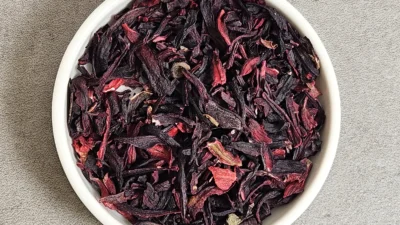The nettle plant, also known as the “fire plant,” is one of the ancient medicinal plants used to treat many diseases and promote overall health. This plant grows naturally in many regions around the world and is considered a natural treasure due to its rich components, including vitamins, minerals, and bioactive compounds. In this article, we will review the main health benefits of the nettle plant and how to incorporate it into your health routine.
Nutritional Components in the Nettle Plant:
Nettle is distinguished by a variety of nutrients found in its leaves and roots, including:
- Vitamins: Nettle is rich in vitamins such as vitamin A, vitamin C, vitamin K, and a group of B vitamins.
- Minerals: It contains important minerals like calcium, iron, magnesium, phosphorus, potassium, and sodium.
- Fats: Nettle provides some healthy fats such as linoleic acid, palmitic acid, and oleic acid.
- Amino Acids: It contains all the essential amino acids the body needs.
- Polyphenols: Nettle is a source of flavonoid compounds like kaempferol, quercetin, caffeic acid, and coumarin.
- Pigments: It contains beneficial pigments such as beta-carotene, lutein, and luteoxanthin.
These nutrients play a vital role as antioxidants, helping to protect cells from damage caused by free radicals, which may lead to premature aging, cancer, and other diseases.
Health Benefits of the Nettle Plant:
- Improving Blood Circulation:
Nettle contains vitamin C and iron, which enhance red blood cell production and improve blood flow. This helps combat anemia and increase energy levels, as well as accelerate wound healing and tissue regeneration. - Supporting Kidney Health:
Nettle acts as a natural diuretic, helping the kidneys eliminate toxins and excess salts. It may also help break down kidney and gallbladder stones and reduce the risk of kidney and bladder infections. - Enhancing Prostate Health:
Traditionally, nettle is used to treat prostate problems, especially benign prostatic hyperplasia (BPH). It contains compounds that may reduce the size of an enlarged prostate and improve related urinary symptoms. - Supporting Respiratory Health:
Nettle is used to treat respiratory diseases like asthma and allergies. It has anti-inflammatory and antihistamine properties, which help relieve allergy symptoms and improve airflow in the respiratory tract. - Promoting Skin Health:
Due to its antioxidant and anti-inflammatory properties, nettle is used to treat skin issues like eczema and acne. It can be applied topically or ingested to improve skin health and reduce inflammation. - Supporting Hair Health:
Nettle is a common ingredient in hair care products because it helps strengthen hair, stimulate growth, and improve scalp circulation. - Enhancing Digestive Health:
Nettle helps soothe inflammation in the stomach and intestines, improves digestion, and reduces digestive disorders like gas and constipation. - Boosting Immune System:
Thanks to its antioxidants and vitamins, nettle helps strengthen the immune system, enhancing the body’s resistance to diseases and infections. - Combating Inflammation:
Nettle contains anti-inflammatory compounds that help reduce swelling and pain associated with joint inflammation and diseases like rheumatoid arthritis.
How to Use the Nettle Plant:
Nettle can be used in various ways, including:
- Nettle Tea:
Nettle tea can be prepared by steeping dried leaves in boiling water for 10-15 minutes. It is recommended to drink two to three cups daily to enjoy its health benefits. - Nettle Extract:
Nettle extract is used as a topical treatment for skin problems or can be added to water as a tonic. - Nettle Supplements:
Supplements containing nettle powder or extract are available and can be taken according to recommended dosages. - Using Nettle in Cooking:
Fresh nettle leaves can be added to soups or salads.
Warnings and Safe Use:
Despite its benefits, nettle should be used cautiously. Consult your doctor before taking nettle if you are using:
- Blood thinners
- Blood pressure medications
- Diuretics
- Diabetes medications
- Lithium
Nettle may interact with these drugs in harmful ways, such as increasing the effect of diuretics, lowering blood sugar, or excessively lowering blood pressure.
Conclusion:
Nettle is one of the most beneficial and versatile medicinal plants. It can be a valuable addition to your health regimen if you are looking for natural ways to improve skin health, support digestion, or enhance blood circulation. However, always consult a doctor or herbal specialist before starting any new natural treatment to ensure safety and effectiveness




